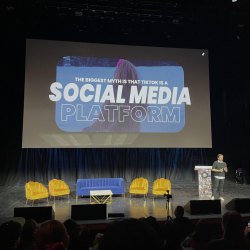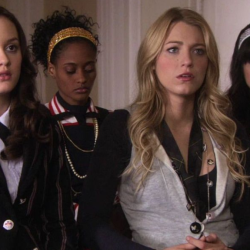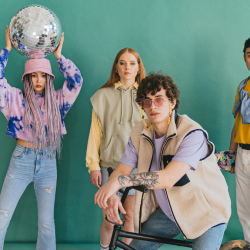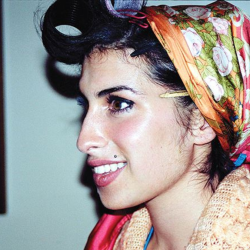We are at a cosmic shift of influence
Looking at our timeline, we have torpedoed through a world that has been rapidly changed by the immediacies of digital technology and social. We have moved from an era of icons. People who forged legacy because of a specialist craft. People who were in a way ‘untouchable’. Fans could only catch a glance in person. On tiny TVs. In a splash in the local rag. To a world where people were famous for being famous sake. Accepted, and in some ways craved in culture for being everywhere, all at once, all the time. Compounded by trending ‘reality’ and overexposure, where attention meant fortune.
But many ‘experts’ on TikTok and Twitter would have us believe that we’re at a tipping point where this is no longer enough. Audience demands have changed and with it what we want from the people who we put on pedestals. In its place the need for something real and accessible. Something driven (like everything) by the Gen Z. The cohort who have transformed whole industries on mass and influence the behaviour of other generations while they’re at it.
Talking about the facts, 64% of Brits have lost respect for influencers who are blatantly driven by commercial gain and those who lack authenticity. This explains the emergence of norm-core and why normal everyday content is booming.
Fast-forward to the present day
It’s official, we no longer want shiny and pristine. The polished Kardashian era is ending as they struggled to ‘stay relevant’ (according to social media expert and marketing guru Jamie Love). In their place, a new level of normalcy and purpose. New gen celebs like Paul Mescal and Emma Chamberlain are in vogue.
Gen Z celebs are redefining their role and using their platforms to encourage discussion on crucial topics. They become advocates for mental health, racial equality, and climate change. They speak out and create a new authentic voice from within, in the industry they belong. Communications consultant, Luciana Ianari summarises this perfectly.
Our expectations in a role model are values driven. People want to be educated; to feel like we are part of something bigger and that we’re connected to one another. ‘We want to know about your disappointments, your struggles, your insecurities. More than ever, we now look up to those who embrace authenticity and want to uplift others
This for me is the modern definition of how to create legacy
But what about those celebrities or personalities who cannot achieve legacy in this way? Those that have been part of that world that is now being shunned by so many. Can their power and money be used in a different way to achieve the same type of output as Gen Z celebs?
Ryan Reynolds would lead you to think yes. He, alongside Rob McElhenney, is creating a legacy in football. They snapped up the Red Dragons (Wrexham FC) in 2020 for a cool £2 million. Since, the club has leveraged attention and transformed into a global brand. The club is back in the Football League after 15 years, enjoying a turnover of nearly £6m (an increase of 404 %) and has deals pending with TikTok, Expedia, Vistaprint and Aviation American Gin. Something other football clubs can only dream of.
And whether you think it’s purely for commercial gain, it’s undeniable there is wider impact. Whole communities are benefiting. It’s creating connection and certainly driving legacy for the pair and the club.
So, no matter which camp you’re in, or which you believe to be the true definition of creating legacy, what is for certain, both disrupt the status quo. Attention is put on using status to achieve something unexpected with less focus on purposeless exposure and growing social followings.
Featured image: Paul Mescal in Aftersun (2022), A24































